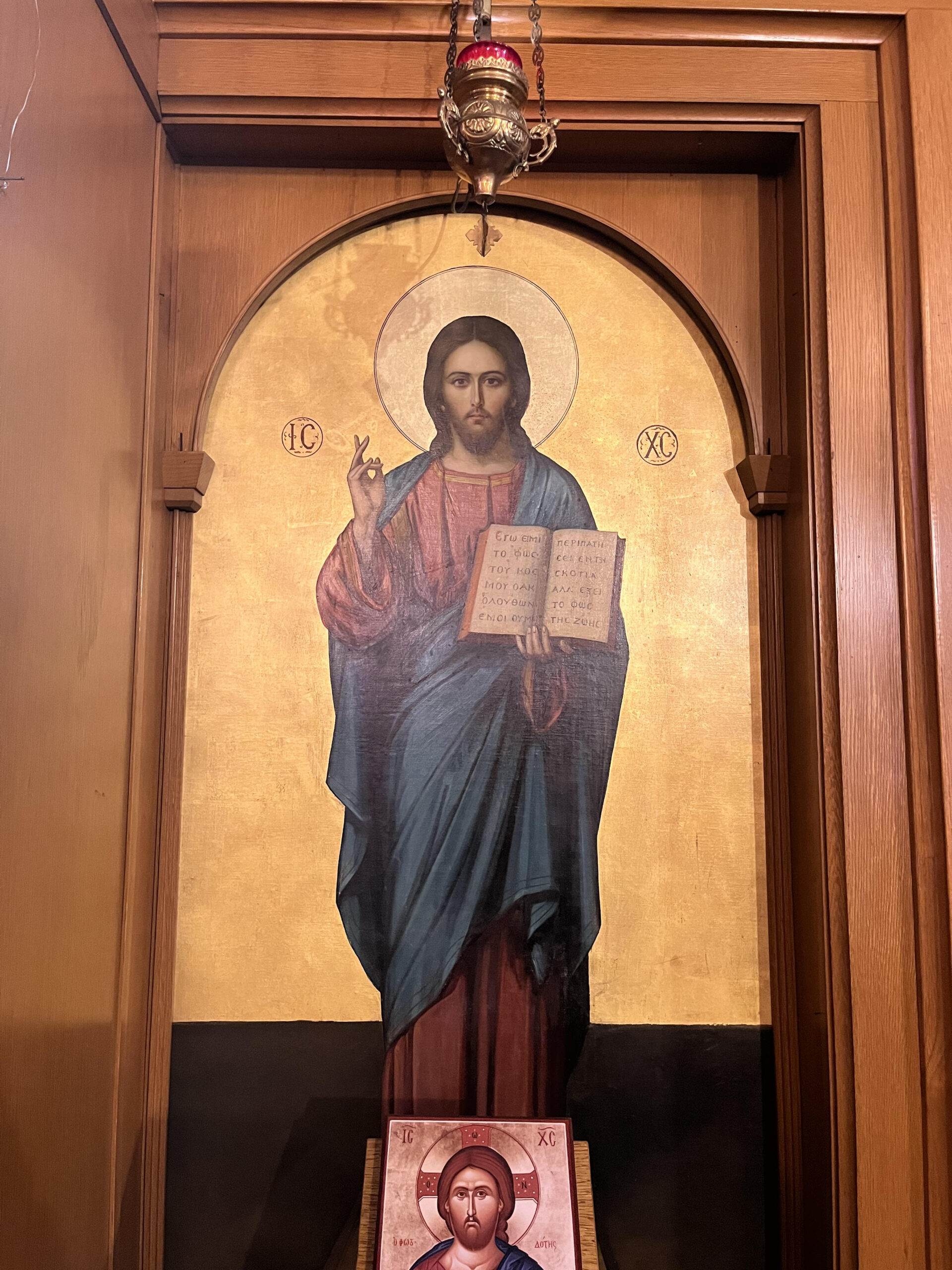Why are you cast down, O my soul, and why are you disquieted within me? Hope in God; for I shall again praise Him, my help and my God.
Psalm 42: 5-6
Many people struggle to pray. And perhaps that struggle is because they’ve never really quite figured out what prayer is, why we do it, and how we do it. I’m one of those people that struggles, I’ve written about these struggles occasionally on the Prayer Team. In fact, perhaps my greatest spiritual struggle is to pray. I’ve had struggles with various sins, but these come and go. I struggle with one, then get a handle on it, only to struggle with a different one. Prayer, however, has remained a lifelong struggle.
Here are a few things I’ve learned about prayer over the years. First, let’s discuss what prayer is not. It is not intended to be a good luck charm—i.e. let’s throw up a quick prayer before our athletic contest and then we’ll get a win, because God will be on our side. That is not prayer. Prayer is not just done to check a box—i.e. I do my prayers, or I say my prayers each night before bed. That is not prayer. And perhaps the biggest thing that prayer is not is that it is not a vending machine. Many people look at prayer like the vending machine, where we put in a dollar (or three with inflation!), punch in what we want, and the machine releases what we’ve ordered. Many people see prayer in this way, where we ask God for something and we get it, or as an old friend used to say, “we name it and claim it.”
Prayer is two things—it is being in the presence of God (loving God) and praying on behalf of others (loving our neighbor). As I get older, I rarely ask God for things—He’s God, He knows what I need even before I ask Him. And He blesses me even without me asking. Prayer has become how I converse with God, and even more beautiful, how I converse with God on behalf of others. One of the greatest joys in my life is the priestly ministry. And one of the greatest joys of the priestly ministry is to pray for others. Sometimes that is done in their presence, like at a meeting or when someone comes into the office. And many times it is done not in their presence. One of the great joys of priestly ministry is preparing the Gifts that will be used at a Divine Liturgy. This preparation is called the Service of the Proskomide. And part of the Proskomide is to offer the names of people. At many Divine Liturgies, I offer hundreds of names, praying for the needs of each as I know them.
I asked my Spiritual Father one day about the efficacy of prayer—i.e. if two people are going in for surgery, and thousands pray for one and no one prays for the other, do they get a different outcome. He said that maybe more people know one person, or maybe no one know the other person is having surgery. There are a myriad of reasons why no one is praying for a particular person. My Spiritual Father sent me a video about quantum physics, which caught my surprise because we generally don’t link faith and science like this. The video was produced by a Christian company and made the point that everything in the universe is connected. Thus, when we offer a prayer for anyone, we are putting something good into the universe. We are putting something Godly into the universe. When we sin, when we hurt someone else, we are putting something evil into the universe. If Christ teaches us to do good and not to harm, to see Him in those around us, then when we pray for others, we are serving them, we are doing good to them. Since I watched this video, I don’t think as much about the outcomes of prayer, either for myself or for others, as much as I think of offering prayer, of putting something Godly into the universe for myself or on behalf of others.
Isaiah 55:8-9 reads “For My thoughts are not your thoughts, neither are your ways My ways,” says the Lord. “For as the heavens are higher than the earth, so are My ways higher than your ways My thoughts than your thoughts.” This is why the phrase “Thy will be done” in the Lord’s Prayer is the hardest four words of prayer that there is. These four words of Prayer acknowledge that God ways and thoughts are higher than ours. These four words of Prayer submit to the ways the thoughts of God. And that’s hard. Because we want to pray for outcomes, not for thoughts.
Sometimes our thoughts coincide with God’s thoughts. Sometimes our prayers are answered just as we hope they are. Sometimes our prayers are answered but in a way we were not anticipating, and God’s thoughts work out better than our thoughts. And sometimes it seems as if prayer goes unanswered, as if God is silent to our thoughts. Perhaps it is not time for His plan to be revealed. Perhaps it is a request that God knows won’t help us. There are lots of reasons for unanswered prayer. However, that should not discourage us from prayer. Again, because prayer is simply being in the presence of God. One of my favorite images of prayer comes from the book “Beginning to Pray” by Archbishop Anthony Bloom, who paints the image of someone sitting in front of an icon of Christ, in a darkened room, with a candle burning in front of the icon. And he says that in this situation, “I look at Him, and He looks at me, and we are happy together.” When prayer goes unanswered for a long time, I think of this image and it grounds me, it helps me keep coming back to prayer even when I wonder why I’m still praying (and yes, I am a priest and I still wonder about that).
Praying for others is actually easier for me. It feels purposeful to offer the names of others up to God in prayer. In fact, what can be more intimate than going to God on behalf of someone else. One of the greatest joys I have in my ministry is to be able to pray with people, not only in worship, but privately, in the office, in pastoral situations, even when someone asks for a quick prayer.
The title of today’s reflection is “Unanswered prayers.” We have all experienced this. The answer is to keep praying. The verse from Psalm 42:5-6 is a plea for help within one’s own soul, when the soul become disheartened because of unanswered prayer. It is a reminder to hope in God, to remember that He is our help and our God and to continually praise Him. And if we’ve stopped for whatever reason, to begin to praise Him and to pray to Him again. Today’s prayer is Psalm 42 in its entirety.
As a hart longs for flowing streams, so longs my soul for Thee, O God. My soul thirsts for God, for the living God. When shall I come and behold the face of God? My tears have been my food day and night, while men say to me continually, “Where is your God?” These things I remember, as I pour out my soul: how I went with the throng, and led them in procession to the house of God, with glad shouts and songs of thanksgiving, a multitude keeping festival. Why are you cast down, O my soul, and why are you disquieted within? Hope in God; for I shall again praise Him, my help and my God. My soul is cast down within me, therefore I remember Thee from the land of Jordan and of Hermon, from Mount Mizar. Deep calls to deep at the thunder of Thy cataracts; all Thy waves and Thy billows have gone over me. By day the Lord commands His steadfast love; and at night His song is with me, a pray to the God of my life. I say to God, my rock: “Why hast Thou forgotten me? Why go I mourning because of the oppression of the enemy?” As with a deadly wound in my body, my adversaries taunt me, while they say to me continually, “Where is your God?” Why are you cast down, O my soul, and why are you disquieted within me? Hope in God; for I shall again praise Him, my help and my God. Psalm 42
Love God by spending time in His presence in prayer. Love others by offering their names to God. If you haven’t mastered prayer, don’t worry, just keep doing it. And perhaps the biggest leap of faith, the biggest mark of faith, is to truly pray “Thy will be done,” and then step back and allow things to happen as God so wills them.


